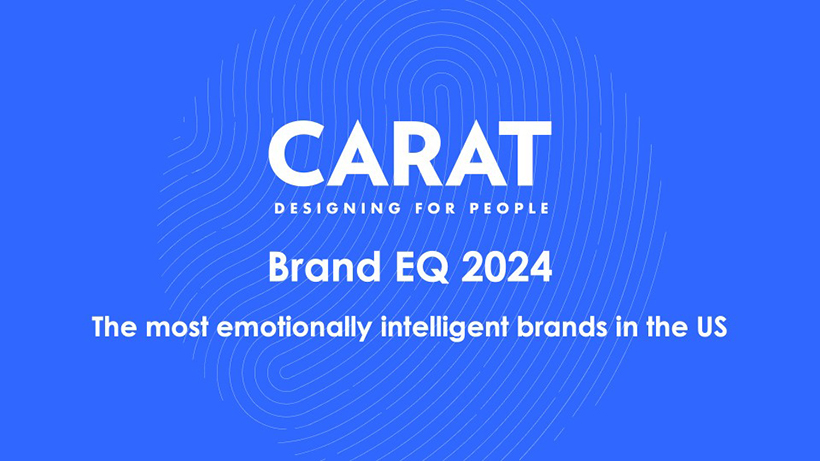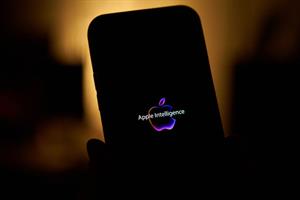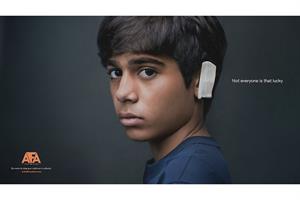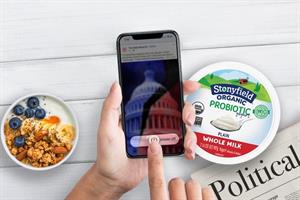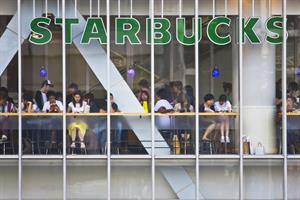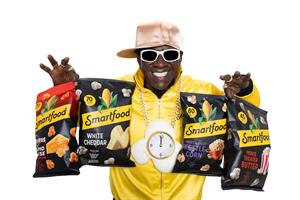At Carat, building emotionally intelligent experiences that give brands a competitive advantage is a key outcome of our work. This is why we devised our Brand EQ methodology — to track the emotional intelligence of the world’s top brands and identify areas of strength and improvement.
Years of research has shown us that brands that exhibit higher emotional intelligence by creating value for people — living their brand purpose, communicating with meaning and delivering exceptional customer experiences — outperform the market on growth
The third edition of Brand EQ, Carat’s proprietary brand study that uncovers the traits that make the most successful brands, underscores the importance of building EQ in an increasingly complex world. Amid a volatile backdrop of socio-political challenges, Brand EQ across the board took a dip as many brands struggled to meet consumer needs. What did the top performing brands have in common? They offered a level of simplicity that today’s consumers are craving.
Lower consumer confidence makes Brand EQ more important
Notable in this year’s report is a decline in Brand EQ at the category level. 2023 was marked by low consumer confidence and, despite modest economic recovery, consumers were less likely to feel that key categories met their needs in this challenging climate. Categories that fit more seamlessly into everyday life — QSR and CPG — were viewed as higher EQ performers, while categories that face greater complexity and trust issues — financial services — were lower performers.
Consumers are looking for simplicity
The brands that rank in the top 10 in the U.S. have a common theme — they all offer greater simplicity to consumers in an increasingly complex world:
• Functional simplicity
Brands such as Amazon (No. 1), Google (No. 2), PayPal (No. 5) and Microsoft (No. 10) offer functional simplicity by taking the complex and making it accessible for people. Amazon and Google make complex ecosystems easier to navigate, PayPal innovates new products to offer greater ease (e.g., Venmo Groups), and Microsoft champions simplicity through AI innovation.
• Emotional simplicity
Brands such as Disney (No. 4), Coca-Cola (No.7), Oreo (No. 8) and Lego (No. 9) enable emotional simplicity by reinforcing simple pleasures. At a time when consumers are finding beauty in the uncomplicated, each of these brands uses comms to promote acts of magic, kindness and playfulness among people of all ages.
Gen Z is less likely to see brands as emotionally intelligent
For a generation coming of age in a time of great complexity, the bar is even higher. A combination of increased levels of brand promiscuity, and not having had the same time to build relationships with brands, causes Gen Z to be less likely to award Brand EQ across the board. Brands will be challenged to increase EQ among this core group to future proof their businesses.
Three steps to boost your EQ in the current climate
1. Demonstrate purpose to increase consumer confidence
Lower consumer confidence contributed to lower Brand EQ overall, but the brands that outperformed their categories doubled down on demonstrating purpose in a challenging economic and social climate. From Chevrolet using comms to drive greater connectivity between people to Heinz celebrating irrational love and Lego celebrating equity in “play,” the brands that outperform their category averages lead in self-awareness (knowing what they stand for). Connecting your brand’s purpose to a consumer need is critical to win Brand EQ.
2. Add simplicity to the journey and user experience
As consumers’ lives become more complex, so does the customer journey that we reach them across. Therefore, it is more important than ever for brands to add meaningful value by alleviating barriers in the journey. In fact, every brand we spotlight that outperformed its category average all lead in motivation (delivering a good experience). The categories that perform the highest in EQ overall (CPG and QSR) are those that offer a simpler journey and user experience, while brands that fall in the top 10 offer functional and/or emotional simplicity.
3. Increase social skills and trust with Gen Z
Gen Z is less likely to award brands higher EQ scores across the board, with a few key exceptions. Where we see most brands fall short are within social skills (meaningful comms) and self-regulation (honesty/integrity). To win favor with this generation, it will be critical for brands to demonstrate generational understanding and media preferences in their communications, and to cultivate trust through their actions. As we find ourselves in 2024, it will be interesting to see if the efforts brands are making to increase key metrics of Brand EQ among this generation will pay off in this year’s results.
As we move forward into second half of 2024, brands should consider how they can enable greater empathy and simplicity in the experiences they deliver. The data is clear — in a culture that celebrates choice and complexity, simplicity can be a powerful driver for brands.
Download the full Brand EQ report to learn how the top 20 emotionally intelligent brands are winning with consumers.


(1)(1).png)
